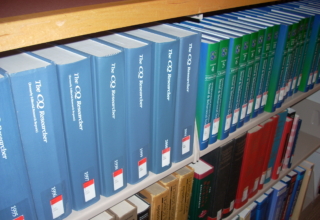
21 Joanne Adams Stroud. “Tapping the strategic potential of executive coaching,” Right Management Consultants, Inc., 2005.
22 Joy McGovern, Michael Lindemann, Monica Vergara, Stacey Murphy, Linda Barker, and Rodney Warrenfeltz. “Maximizing the impact of executive coaching: Behavioral change, organizational outcomes, and return on investment,” The Manchester Review, 2001, 6(1), pp. 3-11.
23 Ibid.
24 Lisa A. Steelman, Paul E. Levy, and Andrea F. Snell. “The feedback environment scale: Construct definition, measurement, and validation,” Educational and Psychological Measurement, February 2004, 64(1), pp. 15-184.
25 Diederick Stoel. “The evaluation heavyweight match,” Training & Development, January 2004, 58 (1), pp. 46-49.
26 Ibid.
27 Jack J. Phillips. “ROI: The search for best practices,” Training & Development, February 1996, 50(2), pp. 42-48.
28 Jack J. Phillips and Patricia Pulliam Phillips. Proving the value of HR: How and why to measure ROI, Alexandria, VA: Society for Human Resource Management, 2005.
29 Jack J. Phillips. “20 frequently asked questions about ROI,” Chief Learning Officer, February, 2005.
30 James J. L’Allier. “Defending your training budget: ROI and other important metrics,” Chief Learning Officer, November, 2002.
31 Dan Kossman. “Investing in learning: Consider value, not just ROI,” Chief Learning Officer, May, 2004.
32 Jack J. Phillips. “20 frequently asked questions about ROI,” Chief Learning Officer, February, 2005.
33 Jack J. Phillips. “ROI: The search for best practices,” Training & Development, February 1996, 50(2), pp. 42-48.
34. Corporate Leadership Council. “Maximizing returns on professional executive coaching,” Strategic Research – Key Findings from Past Council Research: Succession Management and Leadership Development, May, 2003.
35 Ibid.
36 Corporate Leadership Council. “Maximizing returns on professional executive coaching,” Abstract, May 2003.
37 Otto Laske. “Can evidence based coaching increase ROI?” White paper, 2004.
38 “Evaluation framework, design, and reports,” Training & Development Journal Supplement, July 1990, S-15-S-23.
39 Mildred L. Patten. Proposing empirical research, Los Angeles, CA: Pyrczak Publishing, 2002.
40 Douglas T. Hall, Karen L. Otazo, and George P. Hollenbeck. “Behind closed doors: What really happens in executive coaching,” Organizational Dynamics, 1999, pp. 39-53.
41 Mary Wayne Bush. Client Perceptions of Effectiveness in Executive Coaching Dissertation, Los Angeles, CA: Pepperdine University, 2004.
42 Kerry A. Bunker, Kathy E. Kram, and Sharon Ting. “The young and the clueless,” Harvard Business Review, December 2002, 80(12), pp. 80-87.
43 Jack J. Phillips. “ROI: The search for best practices,” Training & Development, February 1996, 50(2), pp. 42-48.
44 Ryan K. Lahti and Michael M. Beyerlein. “Knowledge transfer and management consulting: A look at ‘the firm’,” Business Horizons, January/February 2000, 43(1).
45 Lawrence F. Locke, Stephen J. Silverman, and Waneen Wyrick Spirduso. Reading and understanding research, Thousand Oaks, CA: Sage Publications, 2004, p. 132.
46 Sheila Maher and Suzi Pomerantz. “The future of executive coaching: Analysis from a market life cycle approach,” International Journal of Coaching in Organization, 2003, 1(2), pp. 3-11.
47 Andrew W. Talkington, Laurie S. Voss, and Pamela S. Wise. “The case for executive coaching,” Chemistry Business, November 2002.
48 Anthony M. Grant. “Keeping up with the cheese again! Research as a foundation for professional coaching of the future,” International Coach Federation Conference Symposium on Research and Coaching, Keynote Presentation, November 2003, Denver, CO.
49 Otto Laske. “Can evidence based coaching increase ROI?” White paper, 2004.
50 Paul Michelman. “Are there organizational risks to coaching?” Harvard Business School Working Knowledge, June 13, 2005.
51 Janice M. Morse and Lyn Richards. Read me first for a user’s guide to qualitative methods, Thousand Oaks, CA: Sage Publications, 2002, pp. 15-16.
52 “Evaluation framework, design, and reports,” Training & Development Journal Supplement, July 1990, S-15-S-23.














